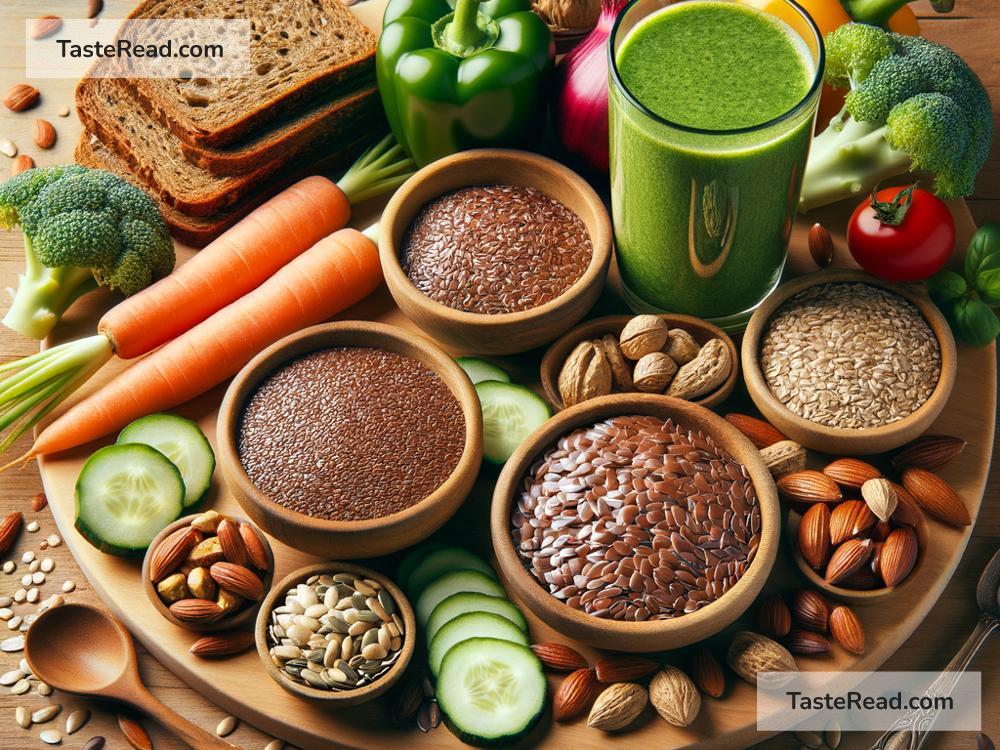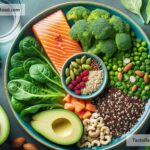Understanding the Role of Dietary Lignans in Health
What we eat has a big impact on how we feel and how healthy we stay. In recent years, scientists have discovered that certain plant-based compounds called lignans can play an important role in improving our health. But what exactly are lignans? How do they help us? And where can we find them in food? In this blog post, we’ll explore everything you need to know about dietary lignans and their benefits in simple terms.
What Are Lignans?
Lignans are natural compounds found in plants. They belong to a group of substances called phytoestrogens. You might recognize the word “estrogen” – that’s a hormone in the human body. Lignans act somewhat like estrogen, but they’re much milder since they come from plants. When we eat foods that are rich in lignans, our body processes them into active substances. These substances can interact with certain functions in our body, leading to positive health effects.
What Do Lignans Do in the Body?
In simple terms, lignans act as antioxidants and have hormone-like properties. Let’s break this down:
-
Antioxidant Properties: Lignans help fight oxidative stress. Oxidative stress happens when harmful substances in the body, called free radicals, damage our cells. Over time, this damage can lead to aging, inflammation, and diseases like cancer. Lignans help reduce free radicals, protecting our body from harm.
-
Hormonal Balance: Lignans mimic the hormone estrogen, but in a gentle, plant-like way. This can be helpful, especially for people dealing with hormone-driven health issues. For instance, they may support women during menopause or offer protection against hormone-sensitive cancers, like breast and prostate cancer.
-
Heart Health: Some studies suggest that lignans can lower cholesterol levels and improve blood circulation. This can reduce the risk of heart disease and stroke.
-
Gut Health: Lignans interact with the good bacteria in our gut. When lignans enter the digestive system, healthy gut bacteria process them into useful substances that benefit overall health.
How Do Lignans Impact Health?
Scientists have been studying lignans for years to understand their effects on various aspects of health. Here are some ways lignans may benefit us:
-
Cancer Prevention: Research shows that lignans might lower the risk of certain cancers, especially those linked to hormones, like breast, prostate, and ovarian cancer. The hormone-like activity of lignans can block the growth of cancer cells and improve the body’s natural defenses.
-
Heart Health: Eating foods rich in lignans has been linked to better heart health. Lignans help reduce bad cholesterol, control blood pressure, and promote a healthy circulation system.
-
Support During Menopause: Lignans may ease some of the symptoms of menopause, such as hot flashes and mood changes. The mild estrogen-like activity of lignans can help balance hormone levels in the body.
-
Bone Health: Some studies suggest that lignans might improve bone density, especially in older adults, although more research is needed to fully understand this benefit.
-
Gut-Friendly Effects: Lignans are prebiotics, which means they feed healthy gut bacteria. A balanced gut helps digestion, immunity, and even mental health.
The Best Sources of Lignans in Food
Lignans are naturally found in plant-based foods, especially seeds. Here are some examples of foods that are rich in lignans:
-
Flaxseeds: Flaxseeds are one of the best sources of lignans. Ground flaxseeds (also called flaxseed meal) are easier to digest than whole seeds, so make sure to grind them before eating.
-
Sesame Seeds: Sesame seeds are another powerhouse of lignans. You can sprinkle them on salads, yogurt, or stir them into baked goods.
-
Whole Grains: Some whole grains, like oats, rye, and barley, also contain lignans. They’re great for boosting fiber intake as well.
-
Fruits and Vegetables: While not as rich in lignans as seeds, certain fruits and veggies like broccoli, carrots, apricots, and strawberries do contain small amounts.
-
Legumes: Foods like lentils, chickpeas, and beans contain lignans and provide plenty of protein and fiber.
Including these foods in your daily diet can help ensure you’re getting enough lignans to enjoy their health benefits.
How Much Lignan Do You Need?
There’s no specific recommendation for how many lignans you should consume every day, but eating a balanced diet with plenty of plant-based foods is a good approach. You don’t need to overeat flaxseeds or sesame seeds – just try to include a variety of foods rich in lignans in your meals.
Final Thoughts
Dietary lignans are tiny compounds with big benefits. Their antioxidant, hormone-balancing, and heart-friendly properties make them a valuable addition to a healthy diet. While more research is still being done, we already know that eating lignan-rich foods like flaxseeds, sesame seeds, whole grains, and legumes can support overall health in many ways.
Remember, eating a variety of nutritious foods is always better than focusing on one “superfood.” By including lignans in your regular meals, you’re giving your body a natural boost to stay healthy and strong. So next time you sprinkle some flaxseeds onto your smoothie or bake bread with sesame seeds, know that you’re doing something good for your health!


